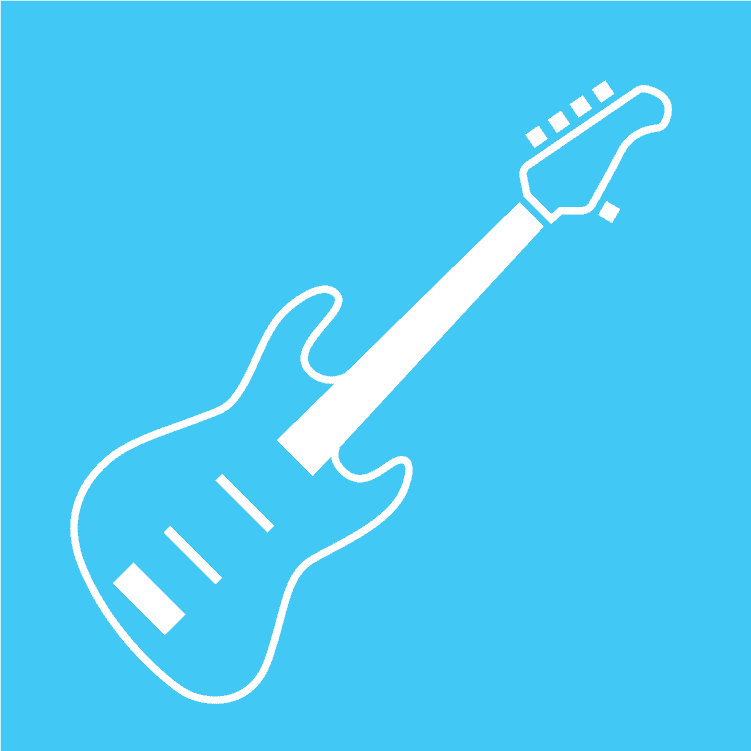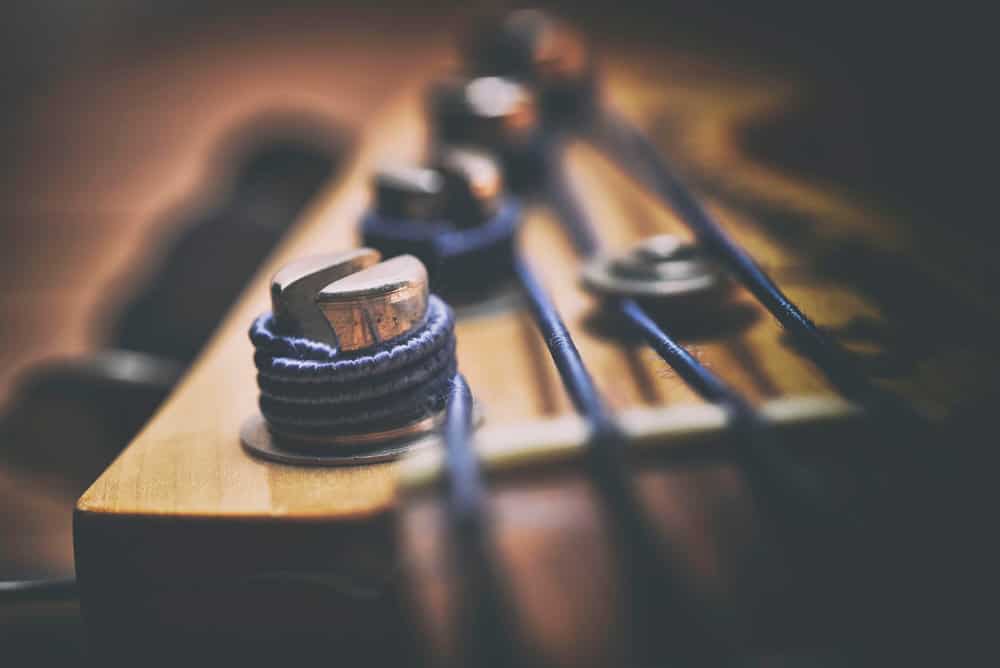Bass Guitar Practice
Have you been finding bass guitar practice dull?
Do you know the one thing which can help get your playing to the next level? Practice! However, not just playing the exact same thing again, and again, and all over again. You can find a method to practice efficiently – and as a part of our ‘Beginner’s Guide To Learning The Bass Guitar’, we’ll teach you the tricks and tips to help you practice better, not longer.

Vital Bass Guitar Practice Recommendations
Practice. If you do it regularly enough, you will become great. Everyone knows this. Exactly why is practice so difficult?
Motivation is vital. Without motivation, you’ll not propel yourself to go back to the instrument day after day. So how can you get motivated?
By winning. Yes, that’s correct. Winning. You are in continuous competition with yourself, and when things go nicely, you feel like you are winning. When you’re in this frame of mind, it’s effortless to practice. It’s the circle of life – winning much more gives you additional motivation, and that means you practice a lot more. Practising even more usually means you win more, therefore it provides additional motivation. And this continues exponentially.
Therefore if it’s so simple, how come practice still so hard?
The answer? Because it’s not that straightforward! Just practising isn’t good enough. You could practice for three hours every day and not improve.
So if it’s not the amount of practice that sets you into the circle of life, what exactly does?
The level of quality.
Practising for 15 minutes daily, targeted, beneficial top-quality practice is far more useful than 3 hours of unfocused, ‘auto-pilot’ practice.
So you only need quality practice so that you can jump aboard the circle of life train?
Nope! Nothing is that easy. Combine quantity and quality, and you’ll finally be a first-class passenger.
Please read on to learn how to get your first-class ticket, and the ways to stay on the train so long as you want…

Structure Your Bass Guitar Practice
Just how long should you practice per day?
15 to 20 minutes is a good starting place and in all likelihood, not any more than 45 minutes or so each time. After this length of time, we human beings usually zone out – and therefore the practising ends up being a lot less efficient. As a rule of thumb, if you sense your focus waning, stop. Become proud that you just showed up to your practice session, and don’t fear how long you practice for.
How often should I be practicing?
This one is an easy answer – practice day-to-day. This way, you’ll convert your bass guitar practice into a routine. A dedicated, specific everyday practice is much more helpful than twice each week 1 hour at the same time. And bear in mind, when you’re thinking “but how can I find the time to do 20 minutes on a daily basis? !? – just take some of your energy and time from social media over to the bass guitar. We do, after all, spend on average 142 minutes on social media every day!
When should I be practicing the bass guitar?
It will make no big difference when you practice, just so long as you do practice. Experiment with making a predetermined schedule for yourself versus being ad-hok. Observe which options are best, and stick to it.
Bass Guitar Practice Top Tips
1. Remove Potential Interruptions
Imagine your practice moment as ‘you time’. You will be hopefully enjoying the bass guitar because you love it; so switch off your cell phone, tablet, laptop, watch, and any other device that’ll distract you!
2. Get Really Comfy
Over time, you’ll be spending an immense amount of time with your instrument, hence it’s really vital that you get as relaxed as possible. Be sure to have some water, a pencil and a piece of paper for making notes.
3. Setting Goals
What do you need to accomplish? Try to establish a target that you can realize inside your practice session. Working with goals, you’ll improve more quickly and even more effectively.
Perhaps Monday you’ll learn the 1st twelve bars/measures. Then Tuesday you’ll study the last 12. Wednesday could be the tricky little bit in the middle. Thursday might be reminding yourself of all things you’ve learnt so far, and Friday could be aiming to perform the sections with no music (from your memory). Whatever you have to do, fix your aims in writing and then make them happen. And once you achieve your goal, celebrate! I recommend a good bottle of red…
4. Say Howdy To Bad Habits
No-one is perfect the very first time. Consciously know that until you’ve repeated a section a few times, you’ll get some things wrong. Always be as methodical as possible resolving these mistakes, because if you don’t, you’ll find bad habits begin to creep in.
When you discover a very little bad habit beginning to develop, shout out hello to it. Then destroy it right away.
The only way this is effective though is if you’re reliable. Don’t ever permit undesirable habits to sneak in. You’ll regret it!
5. Don't Shut Your Eyes
You might have driven to a location, and when you arrived, you had simply no recollection or recall with regards to the trip. You drove completely on ‘brain auto-pilot’. The exact same thing can occur when practicing the bass guitar.
Should you practice the same way every time, your development will slow down, your motivation will decrease, and the bass guitar will turn into a chore. You can actually battle this very little annoying fact by alternating your practice methods.
This could be as simple as playing with your eyes closed. Performing one hand only. Missing out every other note. Omitting every note that your thumb plays. Performing everything really softly, or extremely noisy. The list is never-ending. Become imaginative. Plus whatever you do – don’t ‘just’ perform the same thing again, and all over again, and again…
6. Become Your Personal Trainer
There is a reason the majority of us went to school; and it’s because we discover best when we have an instructor standing over us, pushing us to progress. But unless you are the Founder of Microsoft, you’re extremely unlikely to be able to afford to pay for a teacher 365 days of the year. Should it make any difference? Certainly not! You are your personal trainer – and you come at no cost!
Firstly, it is more than likely that at least 50% of the time you are performing the bass guitar, you’re too busy focusing rather than actually listening to what you’re playing! It may sound ridiculous, I realize. But it’s true… Now that you’re mindful of it, fix it! Pay attention to the playing WHILST you play…
Next, many of us are living in an age where you can create a decent recording of your playing with nothing but your phone. So get it done. Watch it back and self-critique. Carry on doing this until you improve.
And even if the world’s richest folks wanted to hire my own instructor, they couldn’t manage to pay for it!
7. Start From The Beginning
It seems right to start a piece at the beginning. The thing is should you do that each and every session, your first few notes will sound awesome, but still be disproportionately practised in comparison to the remainder of the piece. Mix it up. Start off at the end! Or in the centre! Or close your eyes and randomly choose a section. Just don’t always start from the beginning!
8. Playing The Simple Parts
It feels terrific to play parts we know well. On the other hand, if that’s the only thing you ever play, you’ll have half the piece to a wonderful standard, and the more complicated half will be a catastrophe. And yes, you will naturally be drawn to the simple parts, which often leaves the problematic bit out in the cold. All alone. Shivering for some comfort and love.
Now consider this logically. If you were to consciously choose what needs much more practice, it would be the difficult element. Right? That requires far more love and consideration. The simple portion looks after itself.
Go on then! Uncover those tough elements…
9. Consider Something Totally New
Sight-reading is a wonderful exercise to round off your practice with. There is no pressure to perfect the piece, and it can be a lot of fun too! This also enables you to test your bass guitar playing skills out on an entirely different piece – or even a different style.
10. Using A Metronome
The metronome is there as your good friend, not foe. So use it and have fun with it.
For sections which can be really fast and difficult, the metronome is usually a fantastic resource. Set it with a nice and easy tempo, that you can play the section flawlessly. Then every single day, notch up the tempo by a little. Sooner or later, you’ll end up being at performance tempo, and it should truly feel as comfortable as when you began at a slower pace.
Added bonus Word of advice: For faster areas, try to get comfortable performing the complex parts ten percent faster than you will need – in that way after you return to the speed you want to perform it at, it should actually feel nice and simple!
11. The Best Bit...
Recall in number 3 I mentioned a nice bottle of red? I figured that was vital enough to mention it twice!

Bass Guitar Exercises
Knowing how to practice the bass guitar is a matter of knowing a few tried and tested practice techniques which will give you clarity, focus and purpose.
In this post, we’ll focus on six simple techniques which you can use to better structure your practice and start getting better results from the time you put in.
Let’s get started!
Warm-Up
Always make sure you warm-up. Even if it’s just for a few minutes before you start to practice.
As well as being a great way to get your hands physically ready to play, a good warm-up also gets your head in the right space.
Think of a warm-up as something almost ceremonious. It’s how you prepare your mind to focus and learn new things.
Part of this ceremony should also include turning your phone off (better still, turn it off and leave it in another room), making sure you’ve got water and a snack in the room with you so you don’t have to leave and closing the door to the room if you can so you can focus on your practice in peace.
Write Down What You’ll Practice
Once you’re warmed up you don’t want to waste time figuring out what to practice. Sometimes it can be hard to choose because musicians have so many things to work on.
Should you work on scales? Arpeggios? Perhaps you should work on some pieces you’re learning?
Too much choice quickly becomes overwhelming and once you’re overwhelmed it’s too easy to just give up altogether.
Instead, take a few moments before you start your practice session (perhaps even the day before) to write down what you’ll do and how long you’ll do it for.
This means you’ve got a purpose from the moment you sit down and no time will be wasted.
Give Yourself Clear Goals
A clear goal will give you clarity, focus and purpose when you practice. But what exactly is a clear goal?
Ideally, your practice tasks that you’ve written down should tell you specifically what you’re doing rather than just provide a general instruction.
Here’s an example.
“Practice scales” seems specific at first but it’s actually very vague. Which scales should you practice? What tempo should you practice them at? How long should you practice for?
“Practice D major scale in 8th notes for 2 minutes” by contrast is clear and leaves no doubt over what you need to do.
This kind of goal setting can be extended to almost any topic you want to focus on.
If you’re learning a new piece do you need to practice the whole thing, the ten bars that you find tricky or perhaps just one section?
Do you need to practice an exercise in all twelve keys or do you know some keys very well but others not at all?
Be honest with yourself about the work you need to do and you’ll see your improvement skyrocket.
Fix One Problem At A Time
Because there are so many things you could work on in any given practice session, it’s easy to bounce from one subject to another and feel that you’re doing a lot when you’re actually not doing much.
Focussing on one thing at a time helps keep your mind fixed on the task at hand.
It may be a hit to your pride at first to spend ten minutes on one thing when you’re used to doing three things in that time but you’ll soon see yourself improve much faster and you’ll see that it’s worth it.
Give Your Practice A Clear End
One of the biggest reasons many bass players waste time is that they don’t give themselves a clear endpoint when they practice.
If they waste ten minutes checking Instagram or fifteen minutes looking around the room it doesn’t matter because they can just practice ten or fifteen minutes longer, right? WRONG!
Having a clear finish point means putting the bass down when that point arrives. Sure, this can be frustrating to leave a practice session mid-task but you’ll find yourself coming back the next day eager to work because you have unfinished business.
You’ll also see that every minute really does count when you’ve only got so many of them before you have to call it a day.
Warm Down
Just as athletes warm down after a training session or a big game, you should do the same.
Play through some material that’s soft, gentle and not demanding for you to play.
It may only take five minutes but you’ll notice a big difference and it always pays to take care of your hands.
Without them, you won’t be able to play!
Bass Guitar Practice Bonus Tips
1. Look After Your Brain
Anytime you are doing something new, your brain learns something about it and creates a neuron. This neuron is like a branch of a tree, and the more occasions you perform repeatedly the neuron process, you reinforce it. Quite simply, the branch of the tree gets much stronger and much stronger. This only transpires though if you do precisely the same thing, regularly.
Alternatively, each time you alter something, a different branch is made. In the event, you play the same passage of music four times, and each time you start using a different fingering or are not completely consistent, you’re making four branches.
So is that a concern? Absolutely! A branch is a choice. When you come to a performance and get to the related part, if the brain has a choice of many different neurons from which to select, it could possibly decide on the incorrect one. It might opt for the one that includes a blunder inside it. For once, the choice isn’t a good thing. If you have one neuron that is definitely correct, the human brain offers no preference – it has just one choice – the right one.
So don’t leave things to chance. Stay consistent. Learn things slowly and properly. And try to perform things properly repeatedly.
2. Recommended Reading
Here are some great books that really helped me when I was starting out and I regularly recommend them to students to this day.
Music Practice: The Musician’s Guide to Practicing and Mastering your Instrument like a professional
I also highly recommend you include How to Read Music in 30 Days in your must-read list. If haven’t already read our guide on How To Read Sheet Music, then do check that out as well.

Bass Guitar Practice - Summary
Should you have discovered one thing from this page, it has to be:
Practice is the most vital point with understanding a musical instrument. Do not leave it to chance. Make a practice procedure. Mix it up. Print off this article and keep referring to it. And be sure you treat yourself…
About the Author
Hugh Richardson
Hugh Richardson is a bass player and writer currently based in London, UK. Recently, he has been busy playing on West End shows and tours including Bat Out Of Hell The Musical, Kinky Boots and Priscilla. When he's not performing, he is probably teaching or spending time perfecting his table tennis game!
You can find out more about Hugh from www.onlinebassguitar.com
Other posts by this author
You can find out more about Hugh from www.onlinebassguitar.com
Will You Be Experiencing 4 Feature Friday?
Every week, on a Friday, I send out the four Feature Friday email. It’s a basic idea that is made up of 4 fantastic things I”ve found that week.
So long as it has something connected with music, it can land in the email. Consider it as a musical pandora’s box!
But you’ll only receive a copy of the email if you gain entry directly below.
Read the next post in this series:




